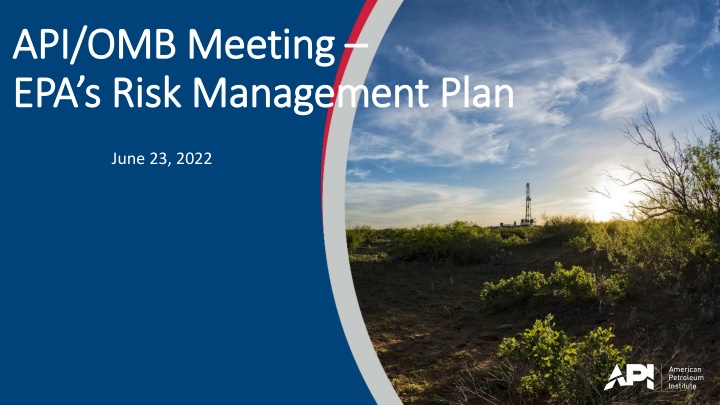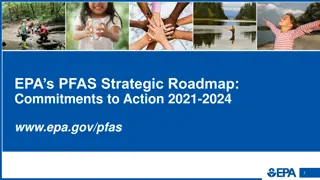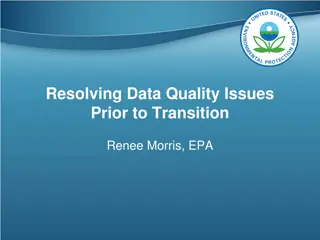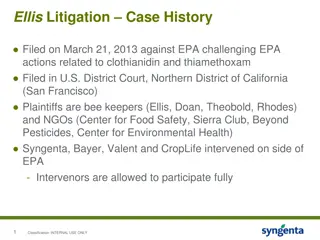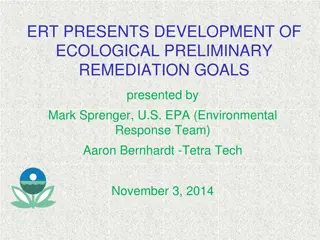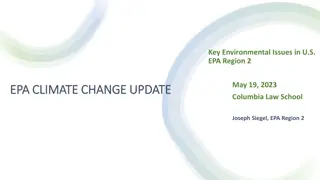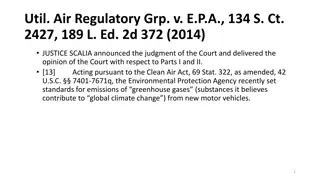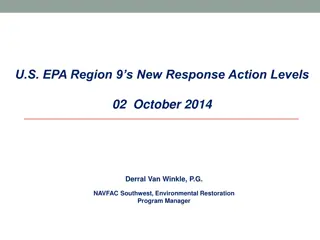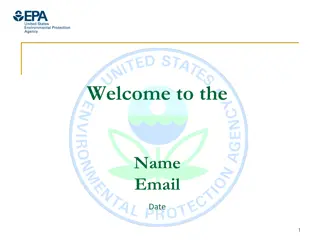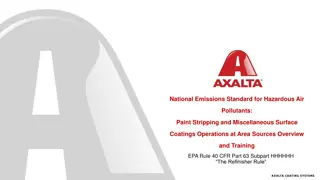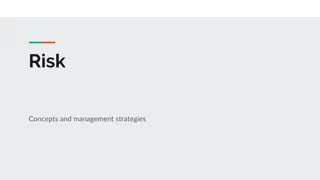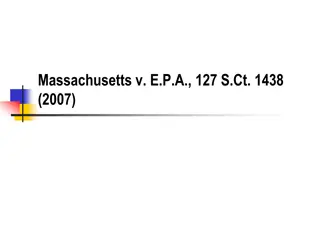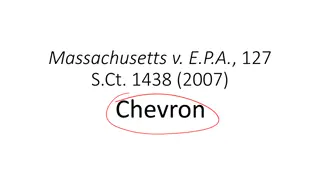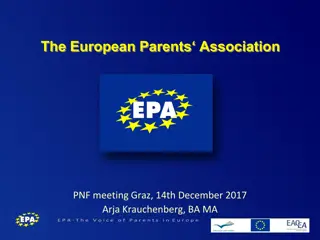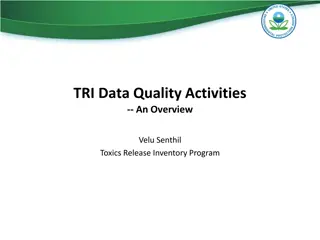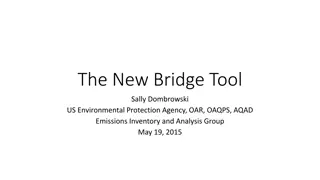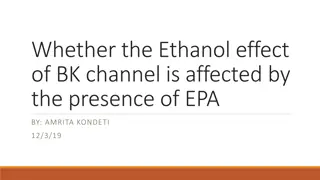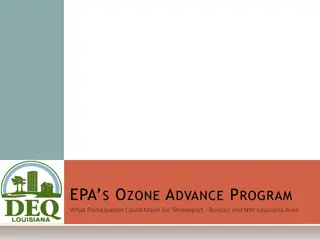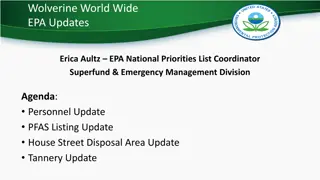EPA’s Risk Management Plan EPA’s Risk Management Plan
This document pertains to the EPA's Risk Management Plan scheduled for June 23, 2022. It likely contains detailed strategies, assessments, and procedures regarding risk mitigation and management as part of an upcoming meeting. The content may include crucial information essential for effective decision-making and organizational planning.
Download Presentation

Please find below an Image/Link to download the presentation.
The content on the website is provided AS IS for your information and personal use only. It may not be sold, licensed, or shared on other websites without obtaining consent from the author.If you encounter any issues during the download, it is possible that the publisher has removed the file from their server.
You are allowed to download the files provided on this website for personal or commercial use, subject to the condition that they are used lawfully. All files are the property of their respective owners.
The content on the website is provided AS IS for your information and personal use only. It may not be sold, licensed, or shared on other websites without obtaining consent from the author.
E N D
Presentation Transcript
API/OMB Meeting API/OMB Meeting EPA s Risk Management Plan EPA s Risk Management Plan June 23, 2022
HF HF What Is It? What Is It? Hydrogen Fluoride (HF) is a colorless gas or liquid chemical compound. HF is the principal industrial source of fluorine and, when dissolved in water, is known as hydrofluoric acid HF acid is mainly used for industrial purposes (e.g. glass etching, metal cleaning, electronics manufacturing) HF acid is used in refineries as a catalyst in the alkylation process to form alkylate, which is a blending component in high-octane gasoline, jet fuel, and marine diesel fuel
HF HF A Brief History A Brief History HF has been safely used in refineries since World War II, when alkylate was first required in aviation fuels Only 2% of HF acid in U.S. is used in refinery alkylation Of the 120+ operating refineries in U.S., nearly all have some form of alkylation unit 42 of which use HF acid There have been few HF releases with off-site impacts; there has never been an off-site fatality in the U.S. due to an HF release Other types of commercially-proven refinery alkylation technologies include: modified HF (MHF), sulfuric acid alkylation, and ISOALKY
HF HF Why It Is Important Why It Is Important Alkylate is the ideal blend stock for gasoline to meet clean fuel regulations Alkylate has high-octane (92-97 RON) and low Reid Vapor Pressure Alkylate helps reduce emissions from automobiles due to its low sulfur content and its very low benzene content HF alkylation is not interchangeable with other refinery alkylation process technologies HF alkylation does not require refrigeration Regeneration of HF does not produce SO2/SO3 emissions Revamp to other commercially-proven technology is prohibitively expensive and would require at least a 2-6 month shutdown
What Are API Members Doing? What Are API Members Doing? Refineries adhere to strict industry standards and undergo safety assessments to mitigate risk and assure safe operations Refineries employ operational standards and mitigation systems, including those covered by API RP 751, Safe Operation of Hydrofluoric Acid Alkylation Units The 5th edition of RP 751 was published in August 2021 and significantly expanded the Materials, Fabrication, and Inspection and Maintenance Practices section PSSAP Program
Representative Sampling Representative Sampling Industry is highly-regulated and facilities have multiple RMP covered processes. Therefore, it is not necessary to audit each covered process if it includes a representative sample Employing sampling as part of the audit process is a robust, scientifically proven, method of demonstrating that all covered process and all RMP elements are compliant The refining industry is extraordinarily complex and highly involved. Auditing all covered processes and all RMP elements requires not only significant resources but is very disruptive to operations Most facilities have only one process, but certain industries, such as chemical manufacturing and petroleum refining, often have more than one regulated process; about 100 facilities have more than 10 regulated processes with an average cost of $36,500 per process
QUESTIONS OR COMMENTS? QUESTIONS OR COMMENTS?
